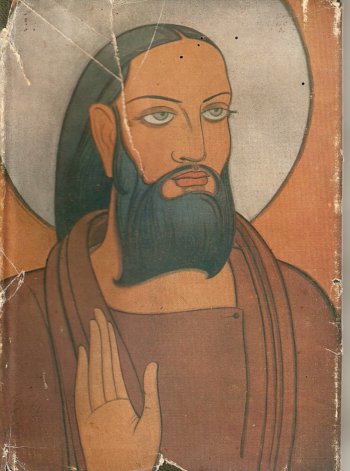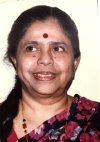| Thursday, July 16, 2009 | | |
Father Thomas Stevens (1549-1619 CE) Father Thomas Stevens, born in England and a Roman Catholic, is considered as the first Englishman to arrive in India. He came as a missionary to spread Christ's message and convert as many numbers to Christianity as possible during his long stay of 40 years in Goa and Salsette. But he is gratefully remembered for his first ever grammar in Konkani, lessons in Catechism and his magnum opus "Christapurana" (a.k.a. "Kristapurana") on life and message of Jesus Christ. It is in the commoner"s spoken language prevalent in Goa at the time.
Thomas Stevens was born in the Huston Town of Wiltshire, England in 1549 CE. His father was a prosperous trader who later shifted to London. Thomas had plans, from the beginning to enter church and become a missionary to spread Christ's message far and wide. But he could not go to Rome from Elizabethan England for religious purposes, emigrant laws being very strict. Along with a friend Thomas Pounde, who had similar dream, he tried to cross. Pounde was caught in the attempt and jailed for 30 years. Stevens escaped somehow, studied theology, Latin, Portuguese, Spanish and joined society of Jesus (S.J). He left for Goa in April 1579 from Lisbon. All international navigation started from Portugal, which along with Spain was the most powerful maritime Kingdom at that time. He reached Goa in October of the same year He was a sound scholar in English, Latin and other European Languages and must have written several letters to his people and officials of Society of Jesus. Only two letters are found, one in English and another in Latin to his brother, Richard. His Keen observation of the language and people of India, the country of his adoption, are reflected in them. "Many are the languages of these places. Their pronunciation is not disagreeable. Their structure is allied to Greek and Latin. The phrases and constructions are of a wonderful kind", he wrote. Perhaps he was the first among scholars who noticed affinity between Indo-European languages. Father Stevens had quite hard life in Goa. Due to forcible conversions locals were hostile. Portuguese language, customs and names were forcibly imposed. But some Preachers like Stevens took pains to learn local languages, customs and intricacies of Hindu religion. Father Stevens understood the local ethos quickly. He studied Konkani and composed a grammar in it, first of its kind, which was a great success. Till then no one could hear confessions of people. It helped not only confessors but also preachers and writers immensely. He also wrote a book on catechism in the form of questions and answers, which was helpful for beginners. But soon he realized that it was essential to teach or write in local language to make people understand Christian philosophy and religion better in the usage of logical terms familiar to them. Kristapurana (Purana of Christ) was born. He was sent to Salsette (Sashsti) island under the Portuguese occupation to preach Christianity. It seems, the whole population became Christian during his stay. But a great literary piece was also composed, which is admired by non-Christians as well for its novelty, lyrical quality and direct appeal. He used words known to one and all. Heaven became Vaikuntha, Satan-bhuta, padri-guru and hell-yamakonda, which had an appeal to commoners. The entire work is in verse form and two-lined ovi metre, prevalent in Konkani-Marathi belt, which was very easy to recite and remember. Divided into two parts 1) paile puran or first puran and 2) dusre puran or second puran. The first part has 36 cantos with 4181 ovis and second part has 59 cantos and 6781 ovis, making a total of 10,962 ovis or stanzas, language being spoken Konkani. As for the widespread popularity of this work which was a parayana (daily recitation) book, separate article is required to describe its glory.
| ||
| Amma's Column by Jyotsna Kamat | ||
Browse Amma's Column by Tags
1920s - ancient India - avatars - banana - bangalore - buddha - calcutta - christmas - coins - colin mackenzie - colonel - conference ii - conversions - cousin - cows - customs - dalit - democracy - dhols - dr narayan - drums - dung - fables - far east - gandhi - gandhiji - great deluge - guru - hinduism - home library - human body - idolatry - kalpa - karnataka - kautilya - kingdoms - krishna - manners - marriage - new books - new year - nuances - obituary - old temple - patience - personalities - peru - pontiff - postal service - prime source - queen - rao - relevance - religion - revolt - romance - runners - saga - saints - Saints of India - salt satyagraha - science - shaven heads - sher - sri lanka - suresh - terracotta - tradition - trauma - tsunami - tulunadu - unity - universality - women - zen - 11th century - 75th anniversary - alberuni - all india radio - amrita - ancient art - ancient india - ancient indians - animals - anmori - arthashastra - autobiographical notes - b_g_l_swamy - babies - basham - bedas - belief - bengaluru - bhagat singh - Bhagatsingh as seen by Kamaladevi. - bhagavata purana - bhagirath - Bhakti Cult - bharata - bhat - blouse - brahmin - brute - buddha jayanti - card games - cart - caste system - centenary tribute - centennial - chanakya - chariot - cheers - chilli - chinese monk - Christmas - christmas eve - cloud messenger - cockfights - code of manu - colonel colin - complete works - conch shell - cuisine - curry - customs - dasa - demons - dessert - devil worship - dhyan - dikshit - dikshitar - discovery - doldrums - eknath - elephant - empire - epigraphy - fanny - festival foods - festive - forest scene - freedom - gandhi - gandhiji - ganesh - gautama buddha - gayatri mantra - gesture - Goa - gods - gramophone record - grandmother - great men - grinder - guru - happy new year - haste - helping hands - hind swaraj - hind_swaraj - hindu - hindu religious symbols - hindu texts - hinduism - hindus - history conference - humanist - hunger - idolatry - indian civil service - indian names - indians - institution of marriage - interviews - jaina - juggernaut - kamath - kannada - karnataka - kasaragod - kavya - keladi - krishna - laughing buddha - legacy - lotus - loving touch - m n srinivas - mallya - mama - mango season - manu - masters - materialism - medieval india - memories - middle path - midwife - misadventure - moorthy - music tradition - musical - musings - narad - narada - new articles - night life - obituary - offerings - old photo - Om - ornaments - pai - pampa - panchatantra - peacock - peacock dance - peacock dress - pearls - philanthropist - pigeons - poet - poetess - potpourri - prayer - prehistory - promising artist - prostitutes - queen - quilt - rahul - rajasthan - rajendra - ramayana - ramdas - rao - rare volume - robber - roots - rubaiyat of omar khayyam - saints - sane guruji - saraswati - saraswats - science - scorn - sea navigation - sedam - serpent worship - shameful practice - sharana - shastra - shivaji - silver art - sorab - south east asia - south india - subba rao - sunset - swami - swamy - swastika - tara - tea - temple school - temple town - terracotta_town - three books - tiger - titan - tonsure - torave_ramayan - tradition - translator - travelogue - tree of life - tribute - tsunami damage - Tulasidas - tuluva - upanishad - vedanta - vedas - viswanath - Viswanath Kashinath Rajwade - vivekananda - w h sleeman - wall paintings - what is in a name - wilks -
Jyotsna Kamat Ph.D. lives in Bangalore.
More articles by Jyotsna Kamat

